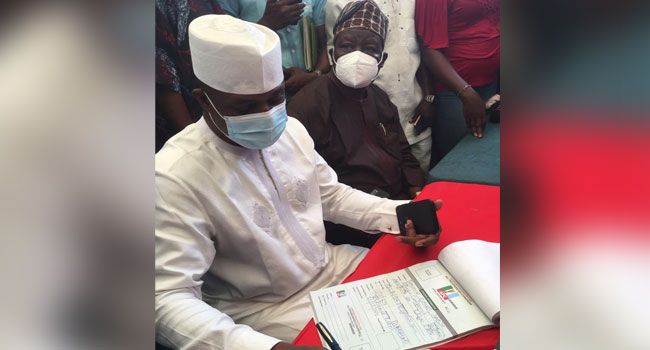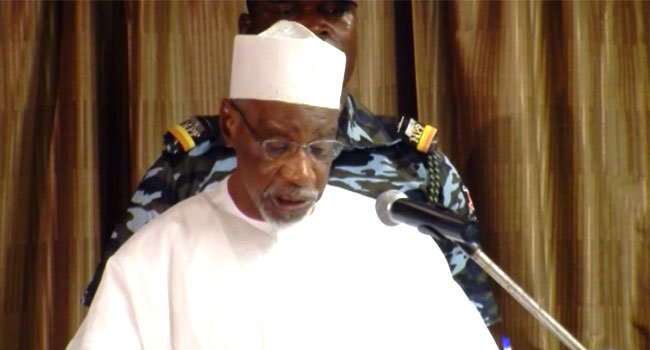An Abuja High Court sitting at Apo, yesterday, fixed January 31 to deliver ruling on a “no-case-submission” before it by the erstwhile Speaker of the House of Representatives, Mr Dimeji Bankole and his deputy, Usman Bayero Nafada, pertaining to the 17-count criminal charge preferred against them by the Economic and Financial Crimes Commission, EFCC, over an alleged role they played in a N40 billion loan saga that trailed the sixth session of the lower chamber.

Presiding Justice Suleiman Belgore slated the date after the embattled duo had through their counsel, Chief Olawale Akonni (SAN) and Mr Tayo Oyetibo (SAN), pleaded the court to go ahead and terminate their trial on the premise that neither the proof of evidence adduced before the court by the anti-graft agency nor testimonies of any of the witnesses that appeared in the matter, established a prima-facie criminal case capable of warranting their continued prosecution.
While relying on provisions of the Legislative Houses (Powers and Privileges) Act and the National Assembly Service Commission Act to insist that he was immune from prosecution in all matters which related to, connected with or arose from exercise of his official functions, the former speaker also contended that he could not be tried for the acts, decisions and resolutions of the House of Representatives, taken at its Executive or Committee sessions because the principle of vicarious liability was unknown to criminal law in Nigeria.
Meantime, the EFCC, yesterday, maintained that the proof of evidence it tendered against the accused persons was enough to secure their conviction.
Challenging the “no-case-submission” by the embattled ex-lawmakers, the prosecuting counsel, Mr. Festus Keyamo described the move as a deliberate ploy aimed at delaying the trial, adding that the anti-graft commission did not charge them with “over-spending but for the misappropriation of funds.”
Keyamo further argued that their complicity was established by the sole fact that there was a resolution to commit an illegal act in a meeting that was chaired by the two accused persons.




